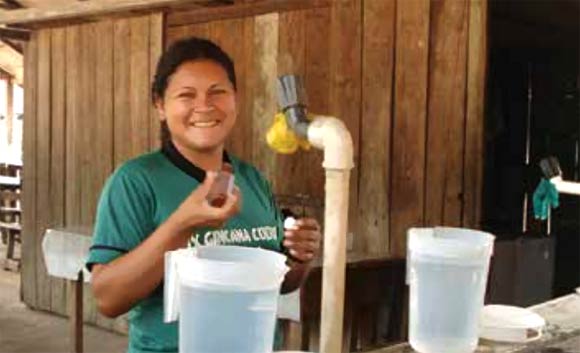Quality, sanitation, and related diseases
The emergence of some diseases is often linked to socioeconomic and environmental problems, such as in the case of diseases related to inadequate sanitation. Thus, in order to better understand the determinants and conditions of cases, hospitalizations, and deaths of this group of diseases, it is necessary to work with information on water quality, sanitation, demography, among other data.
Water quality has been much debated in the field of health sciences, since the consumption of contaminated water can transmit various infectious diseases through forms of exposure such as lack of hygiene or lack of means to clean this natural resource. The causal agents are parasites, present in water organisms, which act as a vehicle for the direct or indirect transmission of these pathogens and in the life cycle of vectors.

Data from the 2010 Demographic Census of the Brazilian Institute of Geography and Statistics (IBGE) indicate that 83% of the households in the country are connected to the water supply network. Areas with supply problems are usually concentrated in rural regions and in favela areas within urban centers. About 64% of urban households have access to sanitary sewage, but in rural areas that number is only 14%. Improper disposal of waste remains a problem, posing a risk to the maintenance of water source quality.
Another important factor is the shortage in water distribution, which generates the need to store water, often in inappropriate containers and without insulation, resulting in another type of exposure to diseases (Borja and Moraes, 2001). Raising these issues and conducting constant monitoring becomes vital, because if not all elements of sanitation are evaluated, the population within the supply network can consume water of questionable quality in their households, and thus expose themselves to risks (Borja and Moraes, 2001).
In Brazil, most of the urban population has acquired access to water through the expansion of supply networks. However, this has happened without the concomitant fostering of the collection and treatment of sewage and garbage. This combination of the expanding access to water supply networks and the increasing vulnerability of surface and groundwater sources may, rather than protect the population, increase health threats (Comitê de Saúde e Ambiente, 1998).